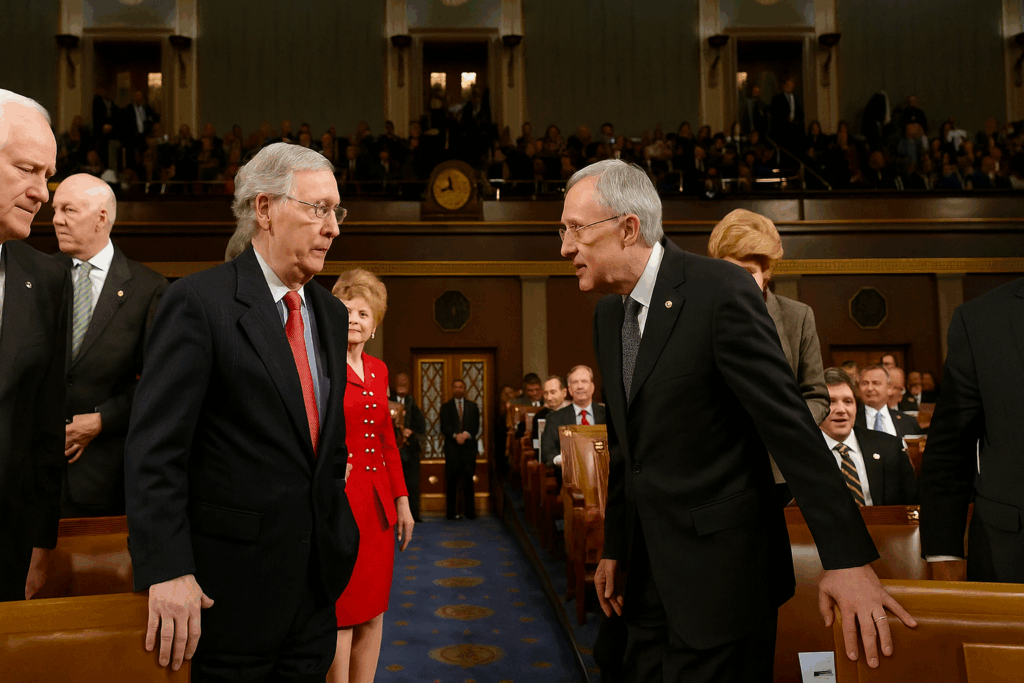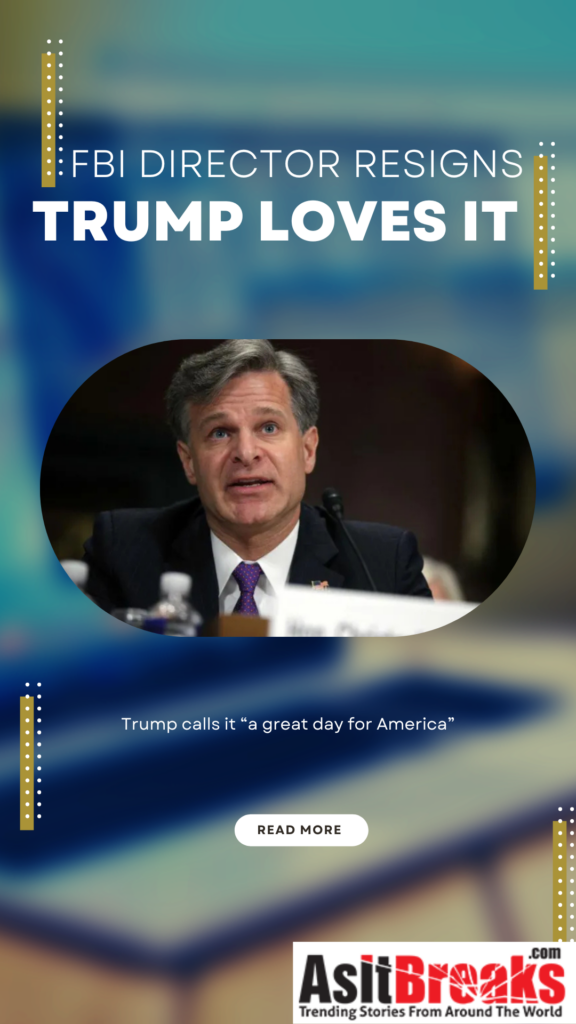President Donald Trump’s renewed call for Senate Republicans to abolish the filibuster and pass legislation with a simple majority has drawn sharp pushback from his own party, even as the government shutdown puts pressure on lawmakers.
In a late-night social media post Thursday, Trump urged Republicans to invoke the “nuclear option” and scrap the 60-vote rule, saying it would allow the GOP-controlled Senate to immediately approve a funding bill. “It is now time for the Republicans to play their ‘TRUMP CARD,’ and go for what is called the Nuclear Option — Get rid of the Filibuster, and get rid of it, NOW!” he wrote.
The president’s remarks came as the shutdown entered its fifth week, with critical programs nearing crisis points. If the impasse continues, SNAP benefits could lapse after November 1, leaving many Americans without the vital food assistance they need. Additionally, federal workers face weeks without pay, and agencies providing services such as healthcare and housing assistance are scaling back their operations, which increases hardship for millions relying on these resources.
Senate Majority Leader John Thune, R-S.D., has repeatedly dismissed the idea of abolishing the filibuster, calling it an essential check on rash policymaking. “The filibuster serves a crucial purpose,” Thune said on the Senate floor earlier this year. “It acts as a check on imprudent or ill-considered legislation. It forces discussion and compromise.” His spokesperson reaffirmed Oct. 31 that Thune’s position remains unchanged, despite Trump’s appeals.
A Rule Rooted in Restraint
Senate Rule XXII, which sits at the heart of the debate, requires 60 votes to cut off debate on most bills, thus providing the minority party with substantial leverage. Before 1975, breaking a filibuster demanded a two-thirds vote—67 senators. In practice, nearly all Senate business, from considering amendments to adjourning for the day, either requires unanimous consent or faces potentially lengthy delays.
Hollywood often dramatizes filibusters as marathon speeches reminiscent of Mr. Smith Goes to Washington. The modern reality, though quieter, is equally potent: just one senator can force a two-day delay before a vote. During the current shutdown, this ability means a small group of senators can effectively stall efforts to advance a stopgap funding measure.
Republicans hold a 53–47 majority and need seven Democrats to cross party lines to reopen the government. Only three have done so—Sens. Fetterman, Cortez Masto, and independent King—leaving Republicans short of 60 votes.
The “Nuclear Option” and Its Fallout
The so-called nuclear option allows the Senate, by a simple majority vote, to reinterpret its rules and effectively lower the threshold to end debate. This maneuver has precedent: Democrats used it in 2013 to ease confirmations for executive nominees and lower-court judges; Republicans used it again in 2017 to confirm Supreme Court justices.
In 2013, Sen. McConnell warned Democrats about the nuclear option, predicting future regret. Republicans later used the rule change to confirm Justices Gorsuch and Trump’s nominees.
Still, McConnell and other senior Republicans have long drawn the line at dismantling the legislative filibuster, warning that doing so could permanently erode the Senate’s character as a deliberative body. “Power is fleeting, and at some point the shoe will always be on the other foot,” Sen. John Cornyn, R-Texas, said when Democrats previously flirted with ending the rule under President Joe Biden.
Republicans Close Ranks
Even Trump’s staunchest allies are balking. Senators John Barrasso of Wyoming, Susan Collins of Maine, James Lankford of Oklahoma, Lisa Murkowski of Alaska, and Thom Tillis of North Carolina have all voiced opposition to changing the rule. Although Sen. Rand Paul, R-Ky., occasionally breaks with the party line, he, too, said the move ‘would destroy what makes the Senate unique.’
Freshman Sen. John Curtis, R-Utah, was among those reaffirming his stance Friday. “The filibuster forces us to find common ground in the Senate,” Curtis said on social media. “Power changes hands, but principles shouldn’t. I’m a firm no on eliminating it.”
House Speaker Mike Johnson, R-La., echoed that caution from his own chamber. “The argument is that you would open up a Pandora’s box by abolishing the filibuster,” he told C-SPAN earlier this month. “When Democrats take control again, they could raise taxes through the roof and take over everything.”
An Uphill Battle
With the shutdown continuing to disrupt pay for hundreds of thousands of federal workers, delay vital services from agencies, and threaten funding for programs like SNAP, Trump’s demand underscores the growing tension between the White House and congressional Republicans. But with dozens of GOP senators on record defending the rule, the so-called nuclear option appears dead before it reaches the launch pad.
For now, the filibuster stands—an enduring symbol of the Senate’s commitment to protecting minority rights and deliberate debate. As partisan tensions persist and policy deadlines loom, the rule remains a formidable check on swift action—frustrating for presidents, but, supporters argue, crucial to the Senate’s unique role in American democracy. Trump’s call may have been loud, but for now, resistance to change endures, leaving Republicans and Democrats alike to navigate a path forward within the chamber’s time-honored constraints.


